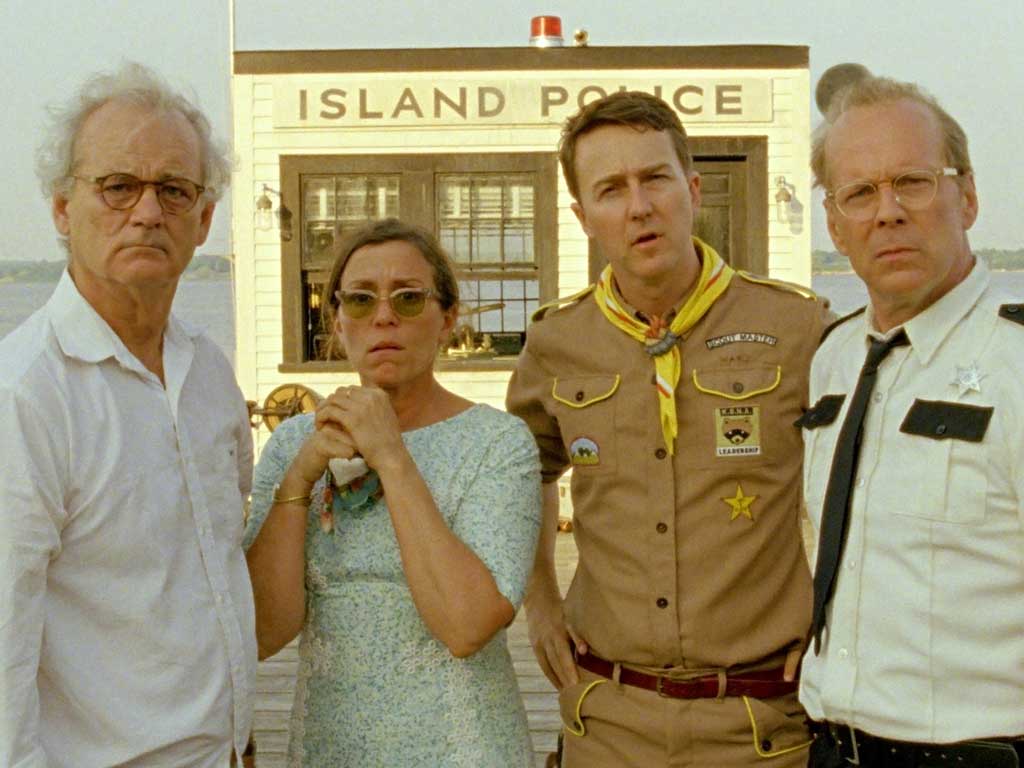Tarantino of the 2000s who's out of this world
Cannes curtain-raiser Wes Anderson is still the king of quirk

Wes Anderson's Moonrise Kingdom opens the Cannes Film Festival today, putting the 43-year-old Texan in rarefied company: the last two Croisette curtain-raisers were Woody Allen and Ridley Scott.
Among the film-makers to emerge at the turn of the 21st century, Anderson was an intriguing oddity – lacking the grand ambition of Paul Thomas Anderson, the range and prolificacy of Soderbergh; shorter on hipster cred than Jonze or Gondry. Yet his aesthetic has been the most pervasive of all. As Tarantino defined the 1990s, so Anderson quietly claimed the 2000s. Some might argue that Anderson (PT) or Alexander Payne are equally influential, but their impact is hard to measure. Anderson (W)'s stylistic tics are unmistakable.
Moonrise Kingdom is set in the mid-1960s, where post-war conservatism meets the counterculture. A boy scout runs away from summer camp with his sweetheart. As they trek into the wilderness, armed with eclectic survival tools and fashionable seven-inch singles, they're pursued by a search party of stars including Bill Murray, Ed Norton and Bruce Willis. Any jeopardy suggested by the premise is undermined by its arch tone. Like most of Anderson's movies, it contains precocious children, childlike adults, and a wealth of eccentric visual detail.
In a 2007 essay for The Atlantic, Michael Hirschorn identified Anderson as the leading cinematic purveyor of "Quirk": "The ruling sensibility of today's Gen-X indie culture... an embrace of the odd against the blandly mainstream. It features mannered ingenuousness, an embrace of small moments, narrative randomness, situationally amusing but not hilarious character juxtapositions... and unexplainable but nonetheless charming character traits. Quirk takes not mattering very seriously."
Moonrise Kingdom's trailer is typically Andersonian: intricate, fussily composed mise-en-scène; Kubrickian, symmetrical framing; slo-mo tracking shots accompanied by nostalgic rock music. (Though the titles are a familiar Anderson yellow, they're not in his customary Futura font – as synonymous with the director as Woody Allen's preferred Windsor.) Like the Nouvelle Vague film-makers who once dominated Cannes, Anderson is an auteur. Like Allen, he has chosen not to broaden or diversify his style, but to refine and crystallise it.
"He's repetitive," says James Mottram, author of The Sundance Kids, which describes the rise of Anderson and his contemporaries. "He has his own world, and all of his films exist in that world. But he's an original, no doubt about it. The Royal Tenenbaums (2001) is a superlative piece of work and remains his best: despite the stylistic tics and general archness, it delivers emotionally. It gets that balance perfectly right. The Life Aquatic (2004) and The Darjeeling Limited (2007) were too lightweight and whimsical."
Perhaps the problem is not so much Anderson's own films, but that, by the time of The Life Aquatic – the first to meet a mixed critical response – his style was so ubiquitous as to be grating. It's there in cult favourite Napoleon Dynamite; in Little Miss Sunshine's kooky family road trip; in the precocity of Juno's title character, and the quirkiness of her boyfriend; in The Squid and the Whale, Son of Rambow, The Brothers Bloom, Submarine. Watching Anderson's imitators, good or bad, it's easy to forget the beauty and detail of even his least-loved movies, and the unexpected wonder of seeing Rushmore (1998) for the first time. There's as much to be admired and enjoyed in his two-minute American Express ad as there is in all 82 minutes of Napoleon Dynamite.
'Moonrise Kingdom' is released on 25 May
Join our commenting forum
Join thought-provoking conversations, follow other Independent readers and see their replies
Comments
Bookmark popover
Removed from bookmarks